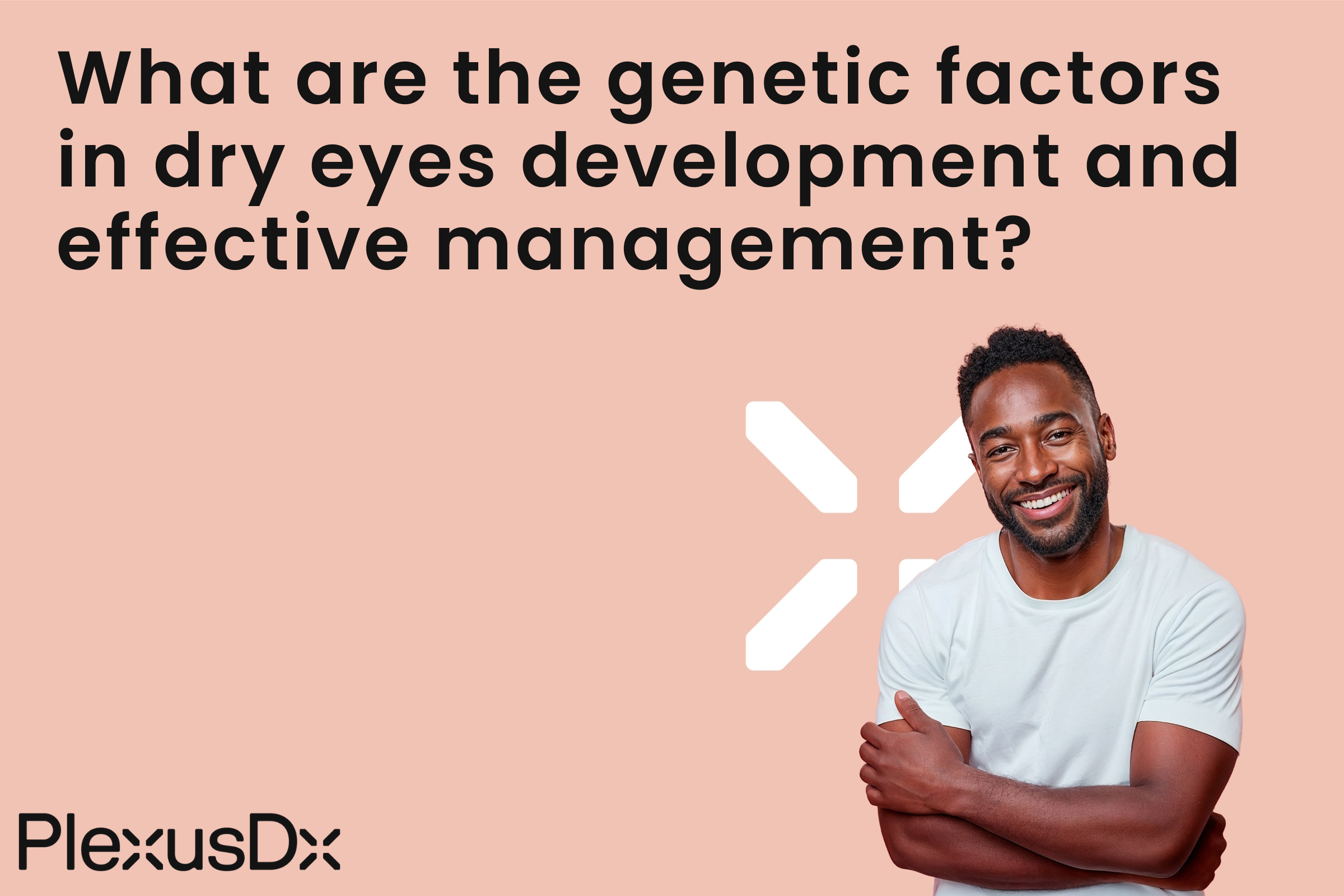Dry Eyes
Dry eyes represent a frequent medical issue that may cause discomfort and lead to vision complications. The article investigates the genetic factors involved in dry eyes to understand how genetic predispositions influence this condition. By learning about genetic factors that cause dry eyes researchers can help individuals develop effective management strategies for this condition.
Genetic Trait
The condition called dry eyes happens when tear production fails to sufficiently moisturize the eyes. Tear production insufficiency results in multiple symptoms such as eye irritation and redness along with vision disturbances. People who suffer from dry eyes often face symptoms like burning sensations and scratchy feelings in addition to light sensitivity and blurred vision. Artificial tears effectively treat mild cases, but medical intervention becomes necessary for more severe instances. Current studies indicate that genetic elements could play a major role in determining whether an individual develops dry eyes. Genetics account for about 30-40% of the variation in people's susceptibility to dry eyes. Genes that control eye cell function and inflammation may contribute to a person's risk of developing this condition. Multiple risk factors and health conditions exist which can raise the chances of developing dry eyes apart from genetic predispositions. The risk of developing dry eyes increases with age especially beyond 50 years old and affects females more often along with contact lens users and people with vitamin A deficiency who lead inactive lifestyles. Sjögren syndrome along with metabolic syndrome, anxiety, and depression are additional medical conditions that may play a role in creating dry eyes. Practical management strategies can help individuals with dry eyes reduce symptoms and enhance their overall eye health.
Consider these practical tips for dealing with dry eyes:
- Stay Hydrated: Proper water intake supports overall hydration and helps maintain eye moisture levels.
- Use Humidifiers: Incorporating a humidifier into your office or home environment helps to protect your eyes from dry air that causes further dryness.
- Follow a Balanced Diet: Eye health benefits from the intake of foods containing omega-3 fatty acids along with vitamin A and antioxidants.
- Take Breaks from Screens: People can reduce eye dryness and strain by cutting back their screen usage and scheduling frequent breaks.
- Consult an Eye Care Professional: To manage dry eyes effectively individuals should regularly consult an eye care specialist and undergo eye exams.
By studying the genetic component of dry eyes we can obtain important information that helps manage this widespread condition efficiently. Individuals can maintain optimal vision and reduce dry eye symptoms by understanding genetic predispositions while following practical eye health tips. The Precision Health & Wellness tests from PlexusDx provide personalized health insights into dry eyes and genetic traits which you can access through PlexusDx.com as well as from Amazon and Walmart. Keep up-to-date information about eye health and use knowledge as power to maintain better health through proactive care.

Share:
Why do some get bronchitis more often than others?
RGS2 gene variations linked to anxiety susceptibility?